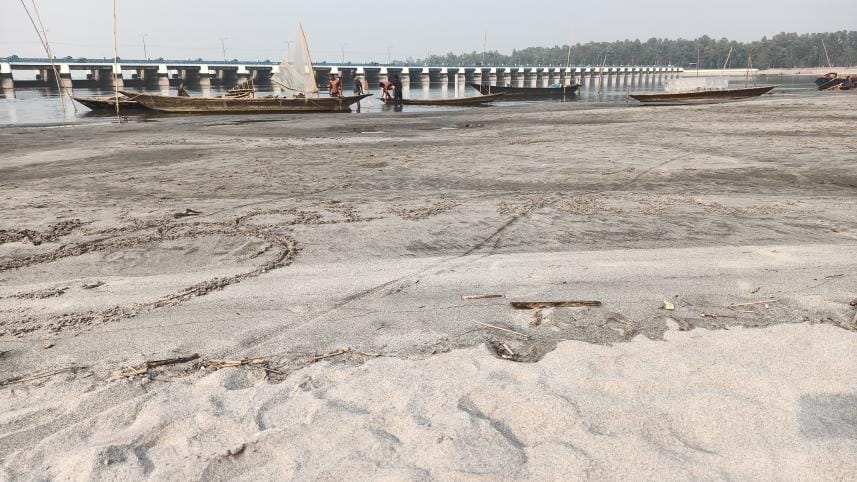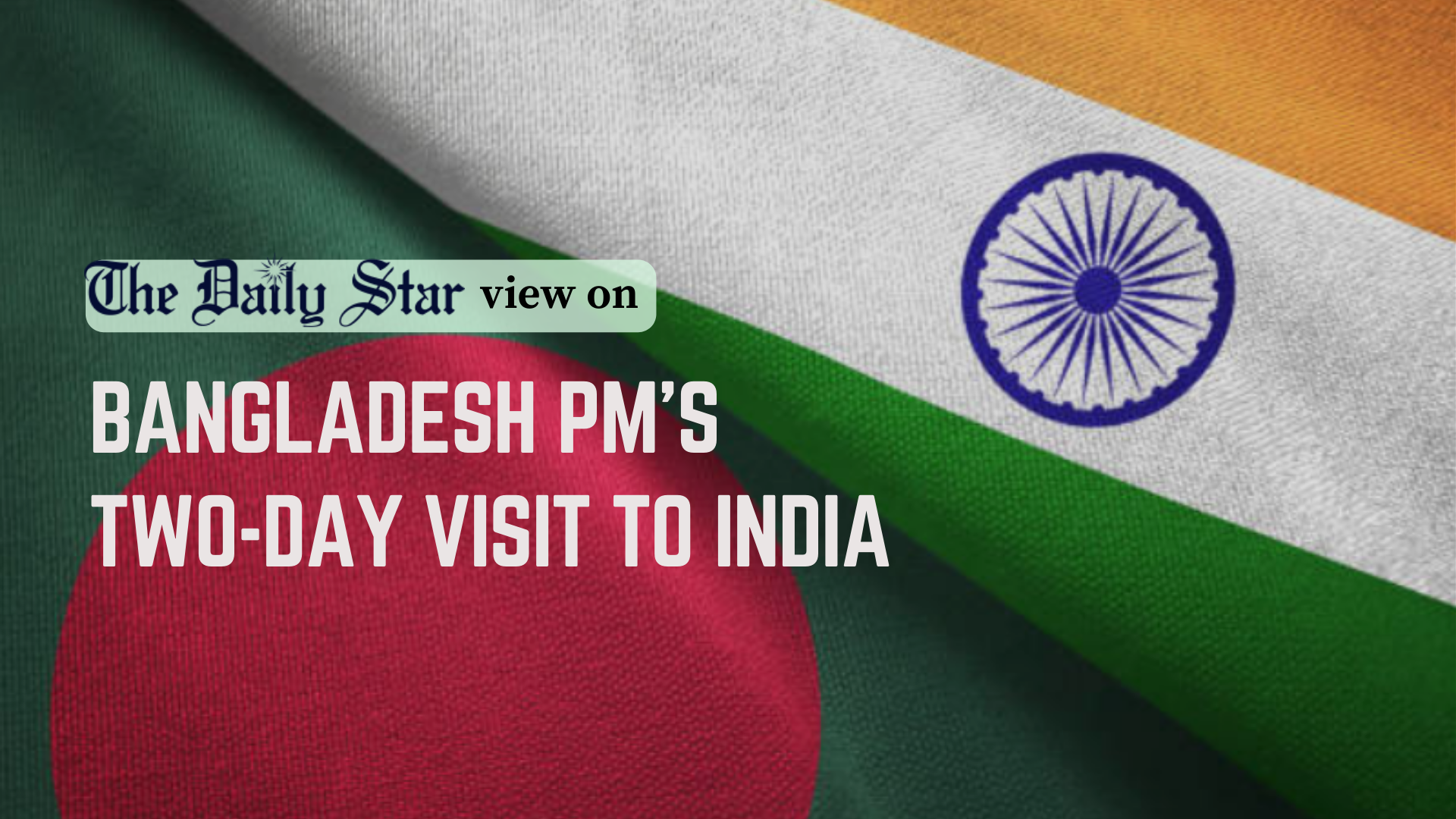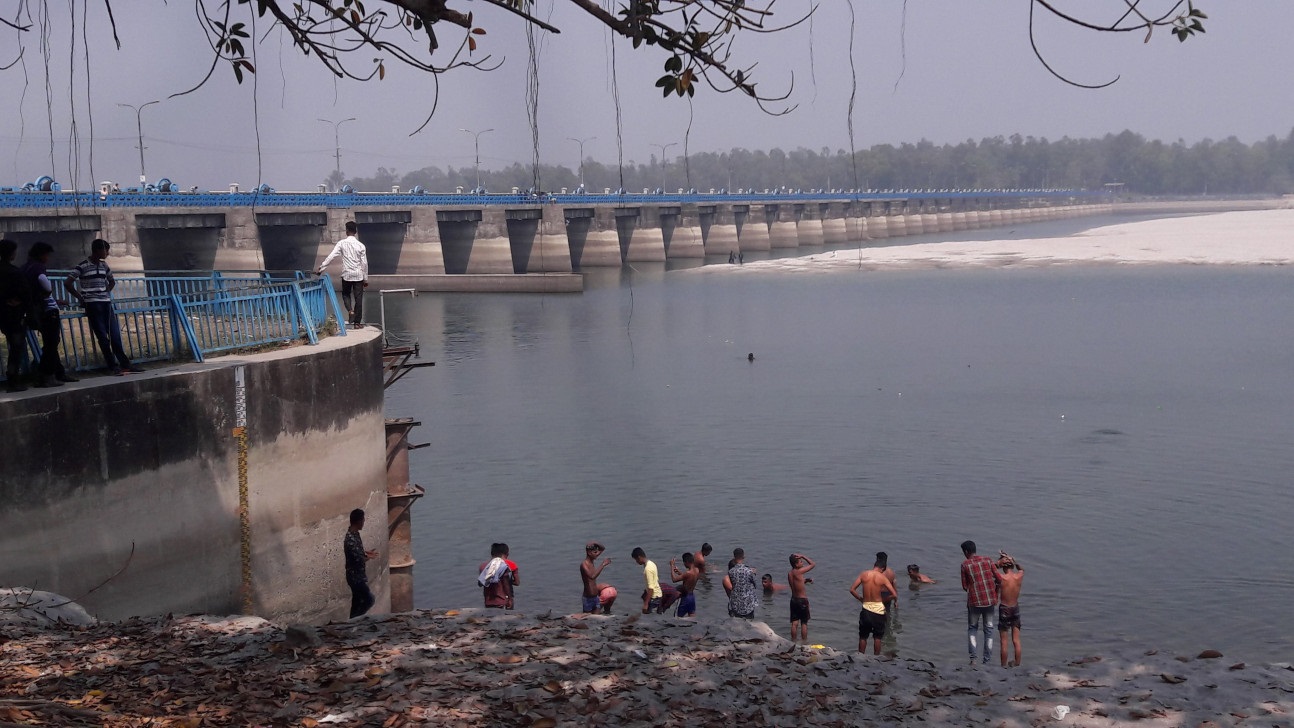Teesta is no longer a bilateral issue

During former Indian Prime Minister Dr Manmohan Singh's visit to Bangladesh in 2011, a deal on the sharing of transboundary river Teesta's water was supposed to be signed, sealed and delivered. But all such expectations were sadly dashed when West Bengal Chief Minister Mamata Banerjee backed out at the very last minute. This was not just an embarrassment for both sides—it took the wind out of such an important visit and left a bad taste here in Bangladesh. The event even prompted the highly respected Indian prime minister, a perfect gentleman, taking the blame and even offering a public apology for the failure to deliver. Since then, the Teesta deal has been stuck in a limbo, with the central and the West Bengal state governments in India blaming each other for any lack of progress as public disappointment on the Bangladesh side continues to gain traction.
It has been customary, especially in Bangladesh, that during any bilateral visit at the highest level between the two neighbouring countries, the burning issue of sharing the waters of transboundary rivers, especially the Teesta, would feature prominently at the talks between the two sides, with the hope that an acceptable solution would materialise. While the issue has featured in the discourses over the years, nothing concrete has yet appeared on the horizon.
However, things took a dramatic turn during Prime Minister Sheikh Hasina's two-day official visit to New Delhi in June this year, with India agreeing to dispatch a technical team to work on developing a comprehensive project covering conservation and management of the Teesta River inside Bangladesh, within a mutually agreed time frame. This was a major move forward. This, taken with an announcement of discussions at the technical level on the renewal of the Ganges Water Treaty, due in 2026, and a basket of other measures on key issues—such as exponential enhancement of multimodal transport and electricity connectivity; increased defence cooperation; extensive collaboration in frontier technologies including civil nuclear, oceanography and space technology; India partnering in the development of a small satellite for Bangladesh and its launch using Indian launch vehicle; and the decision to commence early negotiations for a Comprehensive Economic Partnership Agreement (CEPA) aimed at promoting bilateral trade and investment—gave the visit major substance. All this was covered in a Shared Vision statement for the future course of relations between Bangladesh and India, bound as they are by shared history and geography.
To observers here, though, it was the signal of a positive development on the Teesta issue that understandably drew major attention. However, it is not without a context. With little to no visible progress in finding a mutually acceptable solution to sharing Teesta water until then, there emerged talks of a Chinese study on developing a project on the Bangladesh side of the Teesta, which would include conservation and management of the river. Given the geographical location of the Teesta—so close to the Indian border and not far from the strategically important Siliguri Corridor, commonly known as "the Chicken's Neck"—even the thought of China getting involved in a project of such magnitude presented the possibility of raising serious security concerns for policymakers in New Delhi, more so when there have been limited armed skirmishes between the militaries of the two Asian giants recently. Political commentators in India, including former diplomats, made no secret of the concern. This is when Teesta ceased to be just a river; it assumed a status of strategic importance.
Just days after her return from New Delhi, the Bangladesh PM, while responding to a question at parliament, clearly stated that she had asked the relevant ministries to look at the Chinese proposal on the Teesta. And yet, exactly 10 days later, the Indian decision of sending a technical team to prepare a comprehensive project, one that would include conservation and management of the Teesta River inside Bangladesh with Indian assistance, was announced in New Delhi and in the presence of the two heads of government. Reference was also made on finding an interim arrangement on water-sharing, although no details were given how this sharing would be executed.
That the Teesta issue has now become a diplomatic issue of strategic importance was made abundantly clear by a confident Sheikh Hasina at a press conference after her return from an official visit to Beijing. While the prime minister made it known that she would "give priority to India for the Teesta project," at the same time, she made reference to the Chinese proposal, implying Bangladesh has options. "This is diplomacy," she said.
Realistically, in the end, it is the Indian offer that will see the light of the day. The mention of the words "within a mutually agreed time frame" in the Shared Vision statement is a signal to set the right pace for its implementation. It it is a win-win outcome for both sides.
While there is no denying that the Teesta is of strategic importance, a significant issue of great geopolitical value was the joint reiteration of a shared commitment to a "free, open, inclusive, secure, and rules-based Indo-Pacific region." Such a commitment from Dhaka would not only be welcomed by New Delhi, it would also please listeners in Washington, Tokyo and Canberra, where the terms "open," "secure" and "rules-based Indo-Pacific" have become an integral part of the geo-strategic lexicon. At the same time, the insertion of the word "inclusive" should give some comfort to Beijing.
In sum, the overall outcome of Prime Minister Sheikh Hasina's back-to-back official visits to New Delhi and Beijing served to reinforce the point that relations between Bangladesh and other key Asian players are no more confined to the bilateral frame alone; they play out on a much broader regional and global canvases.
Shamsher M Chowdhury, Bir Bikram is a former foreign secretary of Bangladesh.
Views expressed in this article are the author's own.
This article was published in print on July 23, 2024. Owing to the internet shutdown from the evening of July 18 to July 23, it was uploaded online on July 24, 2024.
We welcome your contributions and analysis of global events, and responses to our articles. To submit articles to Geopolitical Insights, please send an email to ramisa@thedailystar.net.
Follow The Daily Star Opinion on Facebook for the latest opinions, commentaries and analyses by experts and professionals. To contribute your article or letter to The Daily Star Opinion, see our guidelines for submission.



 For all latest news, follow The Daily Star's Google News channel.
For all latest news, follow The Daily Star's Google News channel. 

Comments